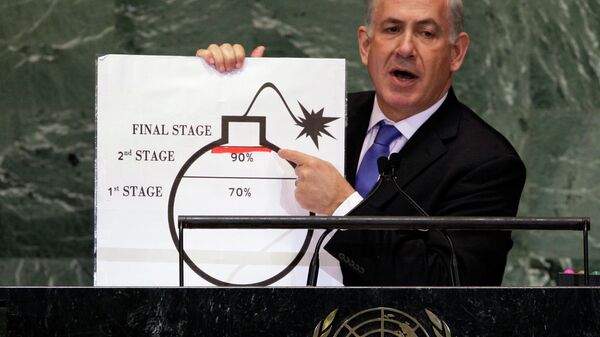TEL-AVIV (Sputnik) — Israel does not see the framework agreement reached in Lausanne on Thursday as a final accord on Tehran’s nuclear program and will seek to revise the deal, Israeli Minister of Intelligence Yuval Steinitz said.
Steinitz was the first Israeli politician to react on the results of the Lausanne talks between Iran and the P5+1 group of international mediators on Thursday.
"We will continue with our efforts to explain and persuade the world in hopes of preventing a bad deal or at least introducing improvements,” the minister said in a written statement, adding that Thursday's declaration was far from being a full comprehensive agreement.
Israeli Prime Minister Benjamin Netanyahu has not yet reacted to the decisions made in the Swiss city of Lausanne, but he has repeatedly said that the negotiations put Israel in jeopardy.
Just a few minutes before the most recent round of Iran negotiations started on Thursday, Netanyahu via Twitter called for the limitation of Iran’s “nuclear capabilities and stop to its aggression and terrorism."
On Wednesday, Netanyahu said that concessions offered to Tehran during the negotiations would endanger Israel, the Middle East and the world.
For over ten years, the P5+1 countries, namely Russia, the United States, China, France, the United Kingdom and Germany have been trying to convince Iran to halt its uranium enrichment program and decrease the number of its centrifuges, fearing Tehran is developing nuclear weapons under the guise of a civilian program.
On Thursday, the P5+1 and Iran reached a framework agreement on the issue. The deadline for a final deal is July 1, 2015.


